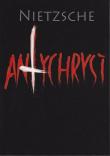
|
The Bible » » The New Testament What a Difference a Word Makes! Textual criticism is the branch of biblical studies which compares the ancient biblical manuscripts with each other to determine, if possible, what were the words of the original manuscripts. Unfortunately, we no longer have any autographs or originals but only copies or copies of copies. Here we focus on one verse, John 7:8, trying to determine exactly what Jesus said. Then we shall show the theological consequences of the correct reading. We may be astonished at the difference one word makes. At John 7:8 did Jesus say to his brothers, "I am not (ouk, in Greek) going up to the feast" of Booths in Jerusalem (Codex Sinaiticus, fourth century, and many other manuscripts)? Or did he say, "I am not yet (oupo, in Greek) going up to the feast" (Papyrus manuscript 75, third century, and many others). If the former reading (ouk) is correct, then Jesus lied, for he did go up (John 7:10). The witness of the manuscripts is divided. Some read "not" and others equally good read "not yet." Thus the English translations are also divided. Some, like the Contemporary English Version, read "not," whereas some, like the King James Version, read "not yet." Still others, like the American Standard Version, read "not," but print "not yet" in the margin as an alternative reading. To me it seems highly probable that the original reading was "not," and that scribes later changed "not" to "not yet" to avoid depicting Jesus as a liar. It is easy to think of a pious scribe making such a change to protect Jesus' honesty, but it is hard to imagine a scribe changing "not yet" to "not" to make Jesus a liar. While textual critics discuss the correct reading, the impression has spread far and wide that Jesus did lie. It may not be surprising that an atheist philosopher, Arthur Schopenhauer (1788-1860), remarked, "Jesus Christ did of set purpose utter a falsehood." To use a modern expression, Jesus lied right through his teeth. But it is shocking to discover that some of Jesus' most loyal followers hold that Jesus lied to his brothers. Some years ago a prominent evangelical theologian told me that he had perjured himself in a certain situation, using Jesus' lie as his justification. If Jesus was indeed a liar, as many hold, then the consequences for basic Christian beliefs are devastating. Jesus the liar is unworthy of our heartfelt devotion and undivided loyalty. Nor as a liar can he be our moral leader, showing us what is right and wrong. We can no longer ask, "What would Jesus do?," for he himself did not always act ethically. He is not our perfect pattern, a perfect ideal in ethics, the perfect standard for all. Jesus as a liar repudiated absolute ethics, the rules of which apply to all persons, in all times, in all places, and in all situations, no exceptions allowed. Jesus favored situation ethics, namely, that one may lie in certain situations. Moreover, Jesus as a liar was not sinless. That means that the major New Testament authorities, Paul (2 Corinthians 5:21; Hebrews 4:15), Peter (1 Peter 3:18), and John (1 John 3:5), erred when they declared that Jesus was sinless. So much for the inerrancy of the Bible. Remember, if there's one mistake, there might as well be a thousand! But of even greater importance is the fact that Jesus must have been sinless to redeem the sinful human race (Hebrews 7:23-28). A sinful Jesus negates redemption through Christ, for "the Lamb of God who takes away the sin of the world" (John 1:29) must be "without blemish or spot" (1 Peter 1:18-19). There's more. To be sinless, Jesus had to be protected from inheriting sin from both his father and mother. Since, according to traditional Christianity, the sinless God was his father, Jesus inherited no sin from him. Nor did he inherit any sin from his mother, since Mary, according to Roman Catholic teaching, was immaculately conceived without inheriting sin from her parents. From the first moment of her conception in the womb of her mother, God preserved her from any taint of original sin. Mary, like God, was sinless. Therefore Jesus, fully protected from any stain of sin, should have lived a sinless life. But since he sinned when he lied to his brothers, he was not virginally conceived nor was Mary immaculately conceived. Thus Jesus' sinful act of lying nullifies his own virginal conception and Mary's immaculate conception. To top it all off, Jesus the liar could not have been God, for God cannot lie
(Titus 1:2; Hebrews 6:18). If Jesus was not God, then there can be no doctrine
of the Trinity (the central doctrine of Christianity), for it teaches that the
Father is God, the Son is God, and the Holy Ghost is God--yet there are not
three Gods but one God. So, is it ouk (not) or oupo (not yet)? If the correct
reading is ouk, which seems likely, then we have the following results: In short, here we have ten mighty blows knocking out Christianity, which is lying forevermore unconscious on the mat. "Like I said," what a difference a word makes! Keep on Reading. Several of my writings elaborate on points of this study: The Seven Mighty Blovvs to Traditional Beliefs, second edition, pp. 97-99, 132; Polluted Texts, p. 27; "Jesus the Liar?," in Sweet Jesus, pp. 103-104. These works are published by The Flatwoods Free Press, Gordo, AL. Photographs of manuscripts may be found in such standard reference works as The Interpreter's Dictionary of the Bible, Volume 4, pp. 749-760; and in The Interpreter's Bible, Volume 12, pp. 629-644; both published by The Abingdon Press, Nashville, TN. The American Rationalist © online « The New Testament (Published: 15-08-2003 Last change: 30-01-2011)
page 2623 |
|||||||||||||||||||||||||||||||||||||||||||||||||||||||||||||||||
| [ Cooperation ] [ Advertise ] [ Map of the site ] [ F.A.Q. ] [ Store ] [ Sign up ] [ Contact ] The Rationalist © Copyright 2000-2018 (English section of Polish Racjonalista.pl) | ||


